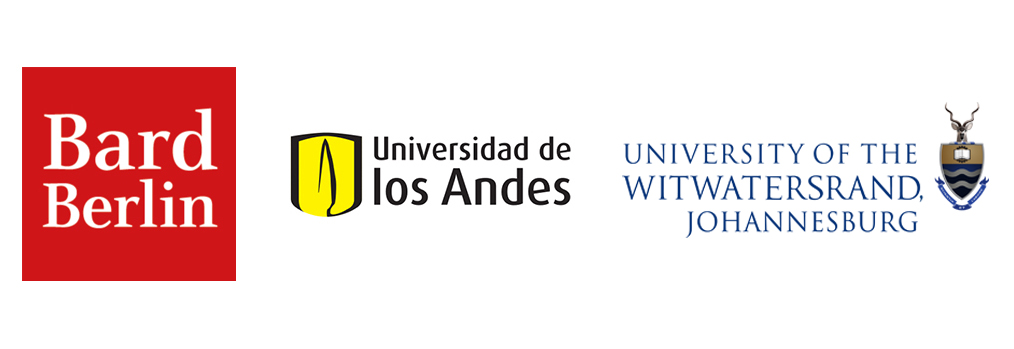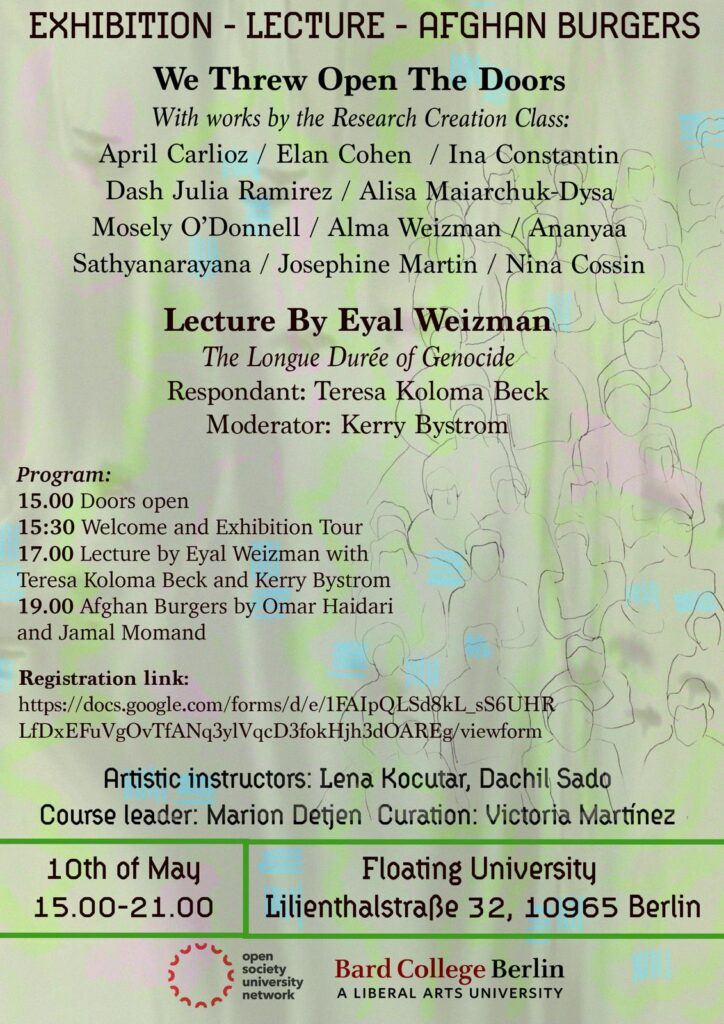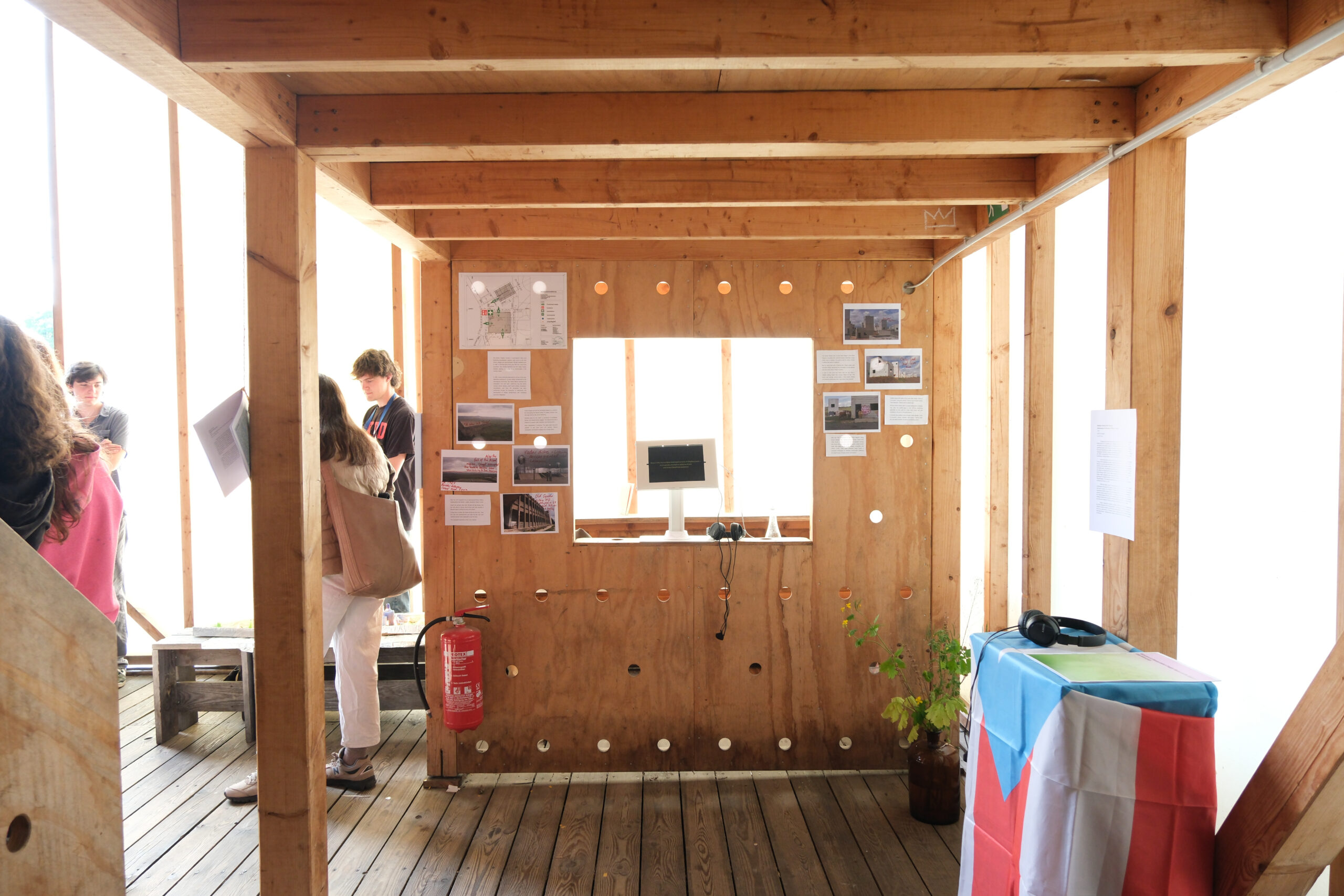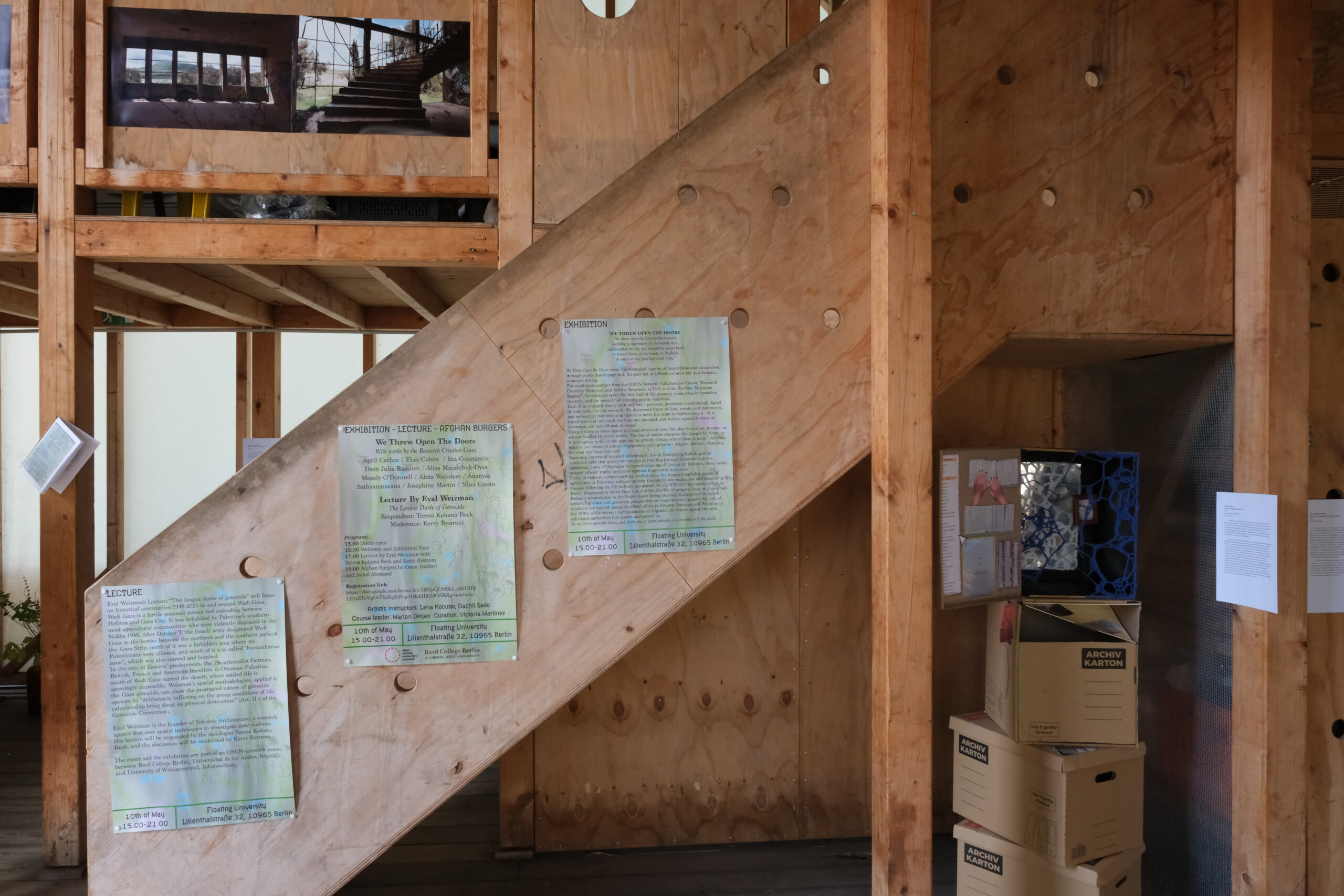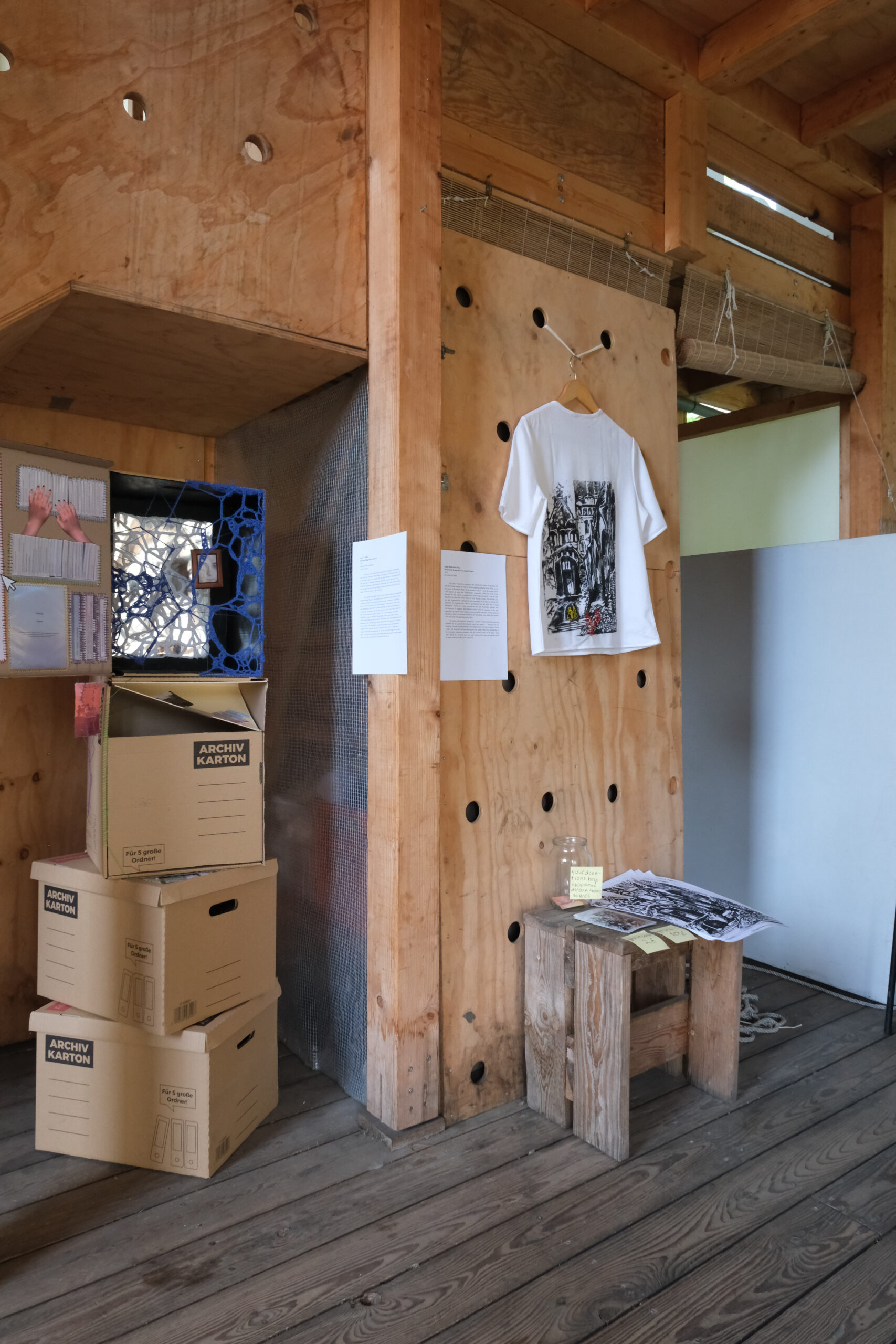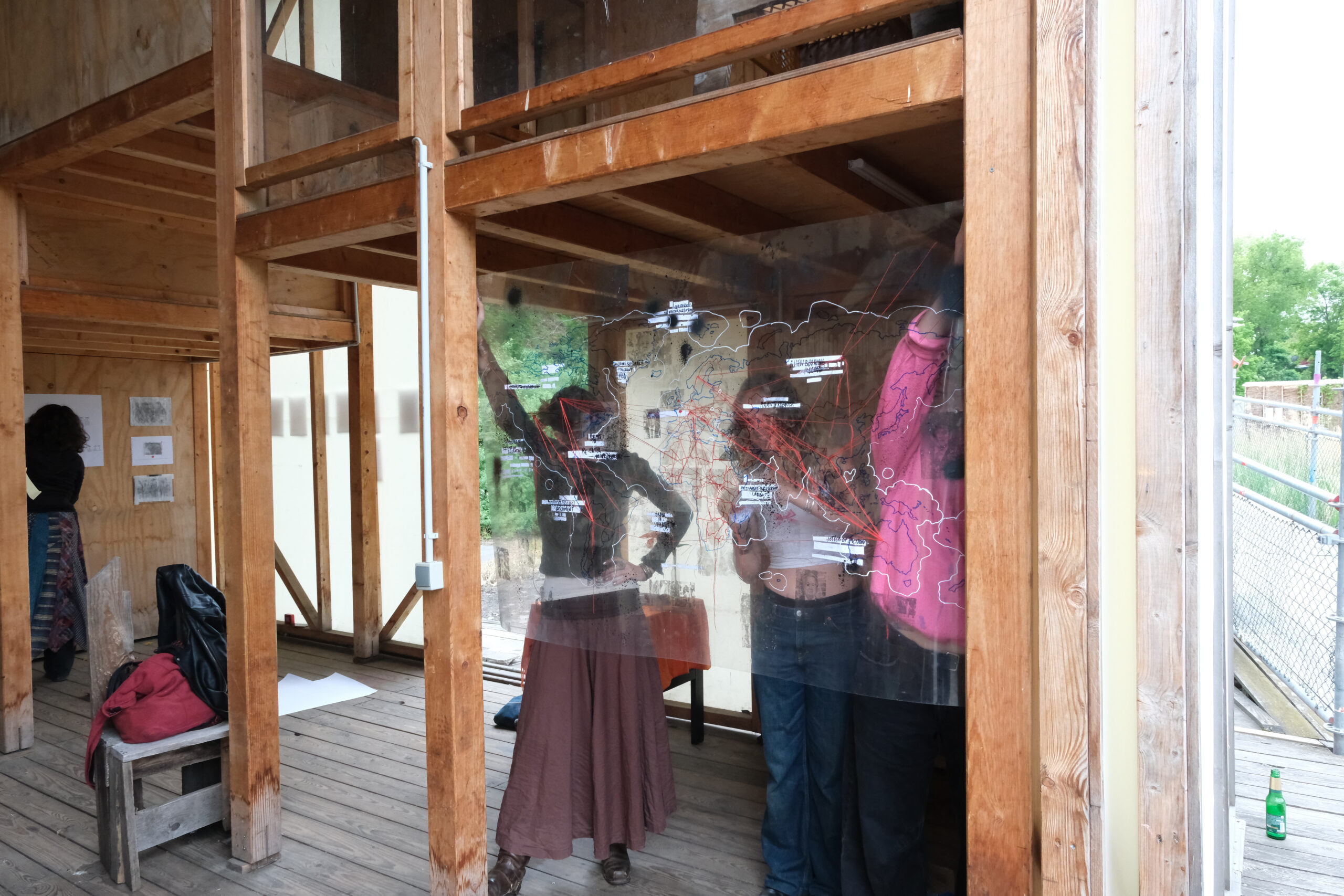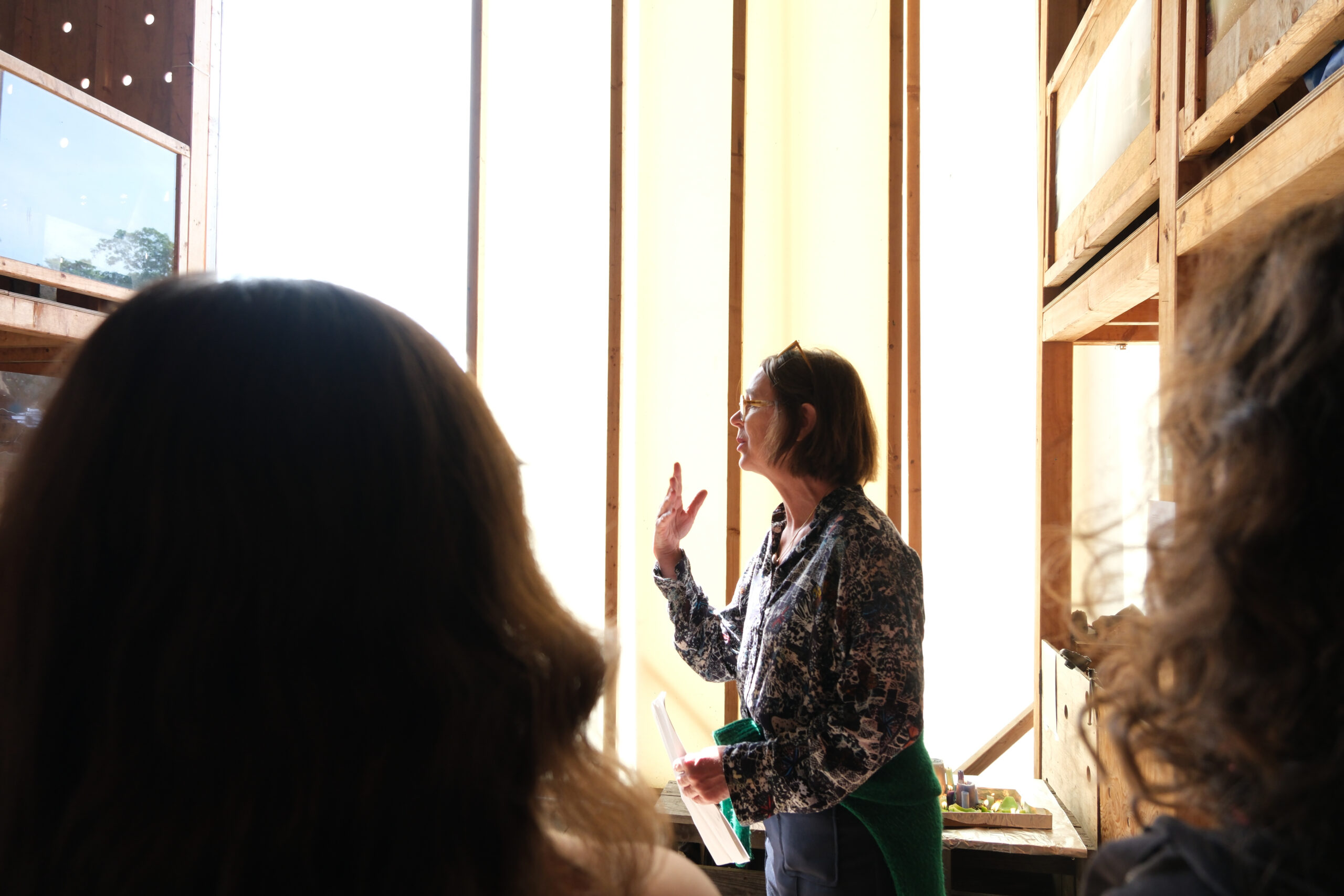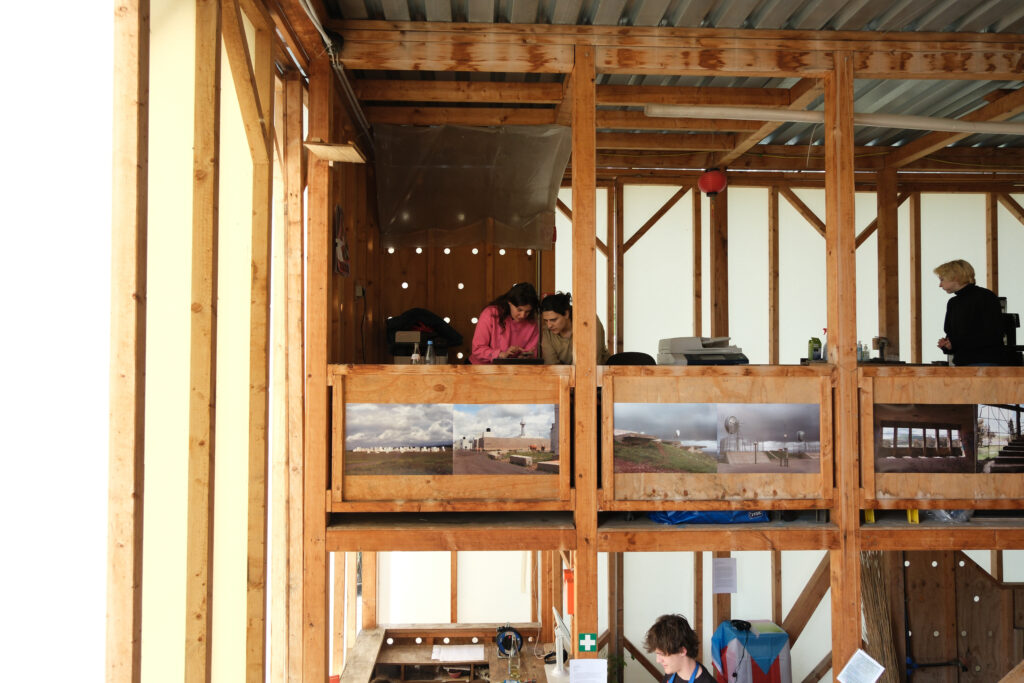
2025 Bard College Berlin, Germany
We Threw Open the Doors
“We threw open the doors to the museum,
shedding its nightmares on the marble steps,
and bounded into the sun, toward the school buses
or toward home, or the forests, or the fields,
or wherever our good legs could roam.”
We Threw Open the Doors traces the entangled legacies of imperialism and colonialism, through works that engage with the past not as a fixed narrative but as a dynamic, contested terrain.
The exhibition emerges from the OSUN Network Collaborative Course “Research Creation: Historical and Artistic Responses to 1945 and the Post-War Migration Regime”, in which we spent the first half of the semester conducting independent research, and the second half creating artistic responses.
Each of us engaged closely with archives – personal, grassroots, institutional, digital or state-held – in our research. We discovered traces of lives, events, and movements, and we learned that revisiting history is never the same as experiencing it – it is traced over and over until the lines are smudged, and stories, especially those of resistance, are lost, diluted, or erased.
Doing history in these spaces is a long process of care, but also frustration, because, as scholar Saidiya Hartman writes, “the loss of stories sharpens the hunger for them, so it is tempting to fill in the gaps and to provide closure where there is none.” Art thus became our means of critical engagement, each gesture – delicate, defiant – listening for what has been obscured.
Spanning linocuts of haunted cathedrals in Soviet Königsberg/Kaliningrad to crocheted webs that mirror the tension of reaching through diasporic archives, handmade flutes of liberation to layered mappings of Indian art histories, these works unravel official ‘truths’ and piece together fragmented narratives.
Cycles of violence surface: melting candles evoke the imposed capitalist system of agriculture in Palestine; collages uncover the community endurance and rebuilding in Vieques following the US military occupation during WWII. Other works reflect on Jewish dispossession under Nazi rule and the afterlife of property laws, or photograph Bedouin communities in the Negev desert facing ongoing displacement by Israeli settlers.
Top down and grassroots perspectives are superimposed: present day acts of solidarity are layered alongside official alliances between Romania and Palestine in the 1970s; while visceral representations of migration in France oppose the cold, calculated authorities that govern and surveil us.
So we throw open the doors, and invite you to learn, unlearn, and tremble with the world.
Course Director: Marion Detjen
Project Supervision and Curation: Victoria Martínez
With contributions from: Alisa Mainirchuk-Dysa, Alma Weizman, Ananyaa Sathyanarayana, April Carlioz, Elan Cohen, Ina Constantin, Josephine Martin, Mosely O’Donnell, Nina Cossin, Dashely Valeria Julia Ramirez

